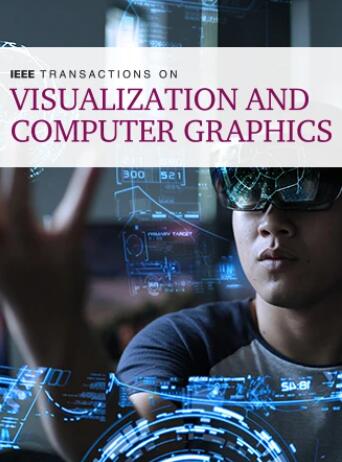Why Visualize? Untangling a Large Network of Arguments
IF 6.5
1区 计算机科学
Q1 COMPUTER SCIENCE, SOFTWARE ENGINEERING
IEEE Transactions on Visualization and Computer Graphics
Pub Date : 2019-09-10
DOI:10.1109/TVCG.2019.2940026
引用次数: 17
Abstract
Visualization has been deemed a useful technique by researchers and practitioners, alike, leaving a trail of arguments behind that reason why visualization works. In addition, examples of misleading usages of visualizations in information communication have occasionally been pointed out. Thus, to contribute to the fundamental understanding of our discipline, we require a comprehensive collection of arguments on “why visualize?” (or “why not?”), untangling the rationale behind positive and negative viewpoints. In this paper, we report a theoretical study to understand the underlying reasons of various arguments; their relationships (e.g., built-on, and conflict); and their respective dependencies on tasks, users, and data. We curated an argumentative network based on a collection of arguments from various fields, including information visualization, cognitive science, psychology, statistics, philosophy, and others. Our work proposes several categorizations for the arguments, and makes their relations explicit. We contribute the first comprehensive and systematic theoretical study of the arguments on visualization. Thereby, we provide a roadmap towards building a foundation for visualization theory and empirical research as well as for practical application in the critique and design of visualizations. In addition, we provide our argumentation network and argument collection online at https://whyvis.dbvis.de, supported by an interactive visualization.为什么想象?解开一个庞大的争论网络
可视化被研究者和实践者认为是一种有用的技术,留下了一系列关于可视化为什么有效的争论。此外,有时还指出了在信息传播中误用可视化的例子。因此,为了促进对我们学科的基本理解,我们需要一个关于“为什么可视化?”(或“为什么不呢?”),理清积极和消极观点背后的基本原理。在本文中,我们报告了一项理论研究,以了解各种论点的潜在原因;他们的关系(例如,建立和冲突);以及它们各自对任务、用户和数据的依赖关系。我们策划了一个基于不同领域的论证集合的论证网络,包括信息可视化、认知科学、心理学、统计学、哲学等。我们的工作提出了对这些论点的几种分类,并明确了它们之间的关系。我们对可视化的争论做出了第一次全面而系统的理论研究。因此,我们提供了一个路线图,为可视化理论和实证研究以及在可视化批评和设计中的实际应用奠定基础。此外,我们在https://whyvis.dbvis.de上提供我们的论证网络和论证集,并提供交互式可视化支持。
本文章由计算机程序翻译,如有差异,请以英文原文为准。
求助全文
约1分钟内获得全文
求助全文
来源期刊

IEEE Transactions on Visualization and Computer Graphics
工程技术-计算机:软件工程
CiteScore
10.40
自引率
19.20%
发文量
946
审稿时长
4.5 months
期刊介绍:
TVCG is a scholarly, archival journal published monthly. Its Editorial Board strives to publish papers that present important research results and state-of-the-art seminal papers in computer graphics, visualization, and virtual reality. Specific topics include, but are not limited to: rendering technologies; geometric modeling and processing; shape analysis; graphics hardware; animation and simulation; perception, interaction and user interfaces; haptics; computational photography; high-dynamic range imaging and display; user studies and evaluation; biomedical visualization; volume visualization and graphics; visual analytics for machine learning; topology-based visualization; visual programming and software visualization; visualization in data science; virtual reality, augmented reality and mixed reality; advanced display technology, (e.g., 3D, immersive and multi-modal displays); applications of computer graphics and visualization.
 求助内容:
求助内容: 应助结果提醒方式:
应助结果提醒方式:


